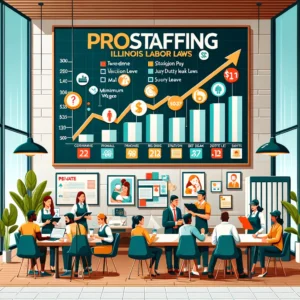Recruiting for a leadership position is a nuanced and critical process that differs significantly from standard job recruitment. It requires a strategic approach, a deep understanding of the market, and an emphasis on cultural fit and leadership qualities. This essay consolidates various strategies and tips to ensure successful recruitment for a leadership role.
Aligning Organizational Vision: The first step in the executive recruitment process is to align your company’s decision-makers. This involves creating a collective vision of the ideal candidate, detailing the achievements expected in the first 30, 60, 90 days, and beyond. It’s about understanding what specific skills, experiences, and personality traits are required for the role. This alignment is crucial for the efficacy of the initial sourcing and recruiting efforts.
Understanding the Market and Employer Branding: A thorough understanding of the job market for leadership positions is essential. This involves researching competitors and knowing what experiences and growth opportunities they offer. A strong employer brand is pivotal in attracting qualified talent. In today’s competitive landscape, an organization must offer more than just a lucrative compensation package; it should present compelling opportunities that align with what senior-level candidates seek in a new position.
Proactive Recruitment of Passive Candidates: Often, the best candidates for leadership roles are not actively seeking new opportunities but are already employed and successful in their current roles. To attract these passive candidates, it’s essential to formulate an exceptional sales pitch that highlights the strengths of your employment brand. The recruitment process should involve developing meaningful relationships with these candidates to increase the effectiveness of your recruitment efforts.
Behavioral Interview Techniques: Behavioral interviewing is a powerful tool in the recruitment process. This approach, which is predictive of future job performance, involves posing open-ended questions designed to elicit detailed responses about a candidate’s past experiences. This method helps in understanding how a candidate might perform in future situations.
Setting Clear Process Expectations: It’s important to have a well-defined recruitment plan. Candidates should be informed about the recruitment timeline and the next stages in the process. A coordinated and swift decision-making process during recruitment sets a positive tone and increases the chances of securing the right candidate.
Assessing Leadership and Cultural Fit: In leadership recruitment, it’s essential to focus on candidates who have demonstrated effective leadership in their past roles. The fit with the organization’s culture is equally crucial, as misalignment can lead to tension and conflict. Tools like personality and behavioral-based assessments are beneficial in forecasting how well a candidate will adapt and perform in their new role.
Considering Potential for Growth and Emotional Intelligence: Sometimes, the most suitable candidates are those with the potential to grow into the role. Emotional intelligence, which includes empathy, self-awareness, and the ability to manage relationships, is a key indicator of successful leadership.
Comprehensive Candidate Evaluation: Thoroughly checking references and utilizing assessments and tools can provide deeper insights into a candidate’s suitability for a leadership role. This comprehensive evaluation is vital to avoid the high costs associated with a bad hire in leadership positions.
In conclusion, recruiting for a leadership role is a complex process that demands more than just matching skills and experiences. It requires a deep understanding of your organization’s needs, the market, and the unique attributes that make a successful leader. A strategic and thorough approach to recruitment can lead to the discovery of a leader who not only fulfills the immediate needs of the role but also contributes significantly to the organization’s long-term success.
By Edgar Hernandez
District Sales Manager for ProStaffing




